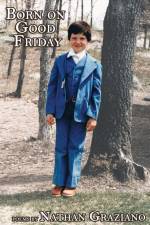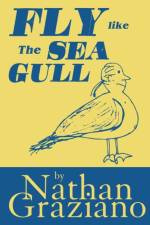av Nathan Graziano
195,-
When you were born at exactly 3 p.m. on Good Friday, you can either start a cult, or write poems and live a life of relative obscurity.Nathan Graziano chose the latter, and in Born on Good Friday-his first collection of poems in nearly a decade-he addresses his complicated relationship with Catholicism and guilt while staring down his vices and a veritable midlife crisis with some doom, some sprinkles of gloom, and an abundance of good humor.Born on Good Friday won't save your soul, but it could amuse you or-even more probable-sit on your bookshelf as you wait for Armageddon."Nathan Graziano is back, and those of us who love his work couldn't be more excited. Reading Born On Good Friday, Graziano's first book of poems in almost a decade, is like eavesdropping on a confessional where you can say whatever you want in whatever way you want, like the kid who takes all the sins he's written down on paper, turns them into a papier mâché dinosaur, then says, "You should have heard that motherfucker roar." This is a book about the pains and joys of sin and the journey to find out how to recognize the difference. Graziano is a comedian, which is why so many of these poems are deeply felt and sting-nothing is as funny as our hardest moments, and Graziano takes all the sadness of being alive and tilts those moments into laughter. Somehow, this is a book about hope because it's a book about living with the truth. You will fail. Embrace who you are. That's success." -Dave Newman, The Same Dead Songs"In the beginning of Born on Good Friday, Nathan Graziano examines how "as an early adolescent, and a Catholic / sin sat like a brick of Bibles on [his] groin." But as the book moves into middle age, Graziano struggles to find "a place where 'love' is no longer a lonesome word." It's this struggle that gives this collection tension and conflict, a youthful glee that turns into adulthood's practical gaze, where panic attacks give way to a middle-aged feeling of hard fought contented sadness. And dare I say it, happiness? Because there's humor here too, found in his son doing homework, where Graziano has to explain "that Uranus jokes / are sophomoric," but still inevitably they end up "laughing in the face of maturity," and so too does the reader. The book moves effortlessly between what we lose from our childhood dreams to the wisdom we gain as we age." -Lindsay Wilson, The Day Gives Us So Many Ways to Eat


